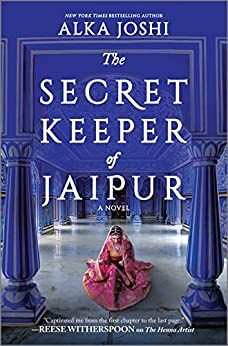Ruth Hull Chatlien's Blog, page 4
February 27, 2022
Sunday Review: Murder in Old Bombay by Nev March
This novel begins with an interesting premise: Captain Jim Agnihotri, an Anglo-Indian officer whose English father is unknown, is in a military hospital recovering from injuries he received in a violent skirmish near Karachi. For a long time after being wounded, he does little but reread the cases of his hero Sherlock Holmes. Then one day, a newspaper article about a shocking event in Bombay—two Indian women from a prominent Parsee family fall to their deaths from the high clock tower—captures his attention. Adi, the husband of one of the women and cousin of the other, is quoted as saying he feels left behind. Which is precisely how Captain Jim feels about surviving the battle in which many of his men were killed.
On impulse, Jim approaches the grieving man and is hired to investigate the case. The ensuing months of digging for answers forces Jim to deal with the complex rules of the upper classes, the troubled waters of India’s political conflicts, and several physical dangers and endurance tests.
The mystery is interesting enough to keep the reader going. It takes a twisting path that goes in several unexpected directions. The characters are engaging; it is especially interesting that many of them are Parsee, an Indian minority I hadn’t encountered in fiction before. The setting is one I usually enjoy—I’ve read a fair number of Indian novels over the years—but I found that this novel didn’t feel quite as rich with sensory description as most of the others. Even so, I took enough pleasure in the book to give it a solid four-star rating.

February 13, 2022
Sunday Review: Paris Never Leaves You by Ellen Feldman
For the most part, I’m weary of all the historical novels set during the world wars, but once in a while, the premise of one will intrigue me enough to give it a chance. Paris Never Leaves You is such a novel. The story is told with the popular device of dual timelines—New York publishing during the 1950s and World War II in Paris—but it feels less disjointed than many such novels because one main character anchors both periods.
In the WWII storyline, Charlotte, a French war widow with a very young daughter, runs a bookstore with a friend during the German occupation of Paris. When the friend is arrested, Charlotte must survive on her own. She reluctantly forms a relationship with a German officer—a frequent bookshop customer—who can provide much-needed food for her child, but it is relationship riddled with danger for both of them.
During the later storyline, Charlotte is trying to live a low-key life in New York, doing her work as an editor and raising her teenage daughter Vivi. However, Charlotte faces an unexpected challenge when Vivi, who knows that in the last days of the war, she and her mother were imprisoned in a camp for French Jews, develops a sudden interest in exploring her Jewish heritage despite her mother’s agnosticism.
I’m reluctant to say more because the novel contains some surprise revelations—portrayals of survival strategies I haven’t seen in other novels set in this time period. Suffice it to say that it deals with the short-term and long-term costs of making moral compromises to stay alive.
For me, the book is a solid 4-star read. Not all of the relationships ring completely true to me, but they were plausible enough to keep reading and enjoy other aspects of the story.
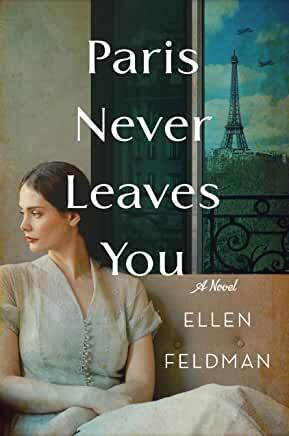
February 6, 2022
Sunday Review: A Woman of Intelligence by Karin Tanabe
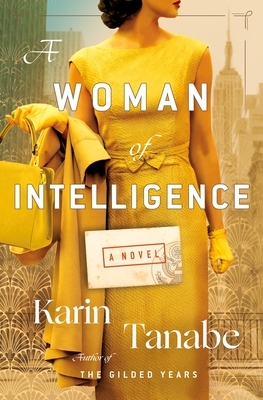
This novel seemed like an appropriate choice to follow up Stephanie Marie Thornton’s A Most Clever Girl because both deal with women in the intelligence game in mid-twentieth century United States. The premise intrigued me enough to overlook my qualms about the cover image: “It’s stunning,” I thought, “but that outfit is more 1962 than 1952.” In this case, I absolutely should have judged the book by its cover. The story never felt authentic to me.
Katharina, the daughter of immigrants, grew up speaking four languages and has since become conversational in at least one more—Russian. The novel opens in the early 1950s with Katharina and a friend watching their very young children in Central Park. The friend seems to have taken to motherhood effortlessly; she’s calm, empathetic, and decisive in dealing with her daughter and any crises that arise. In contrast, Katharina is easily overwhelmed by her rambunctious toddler and crying baby.
Once her “present-day situation” is established, we go back in time to her life just after World War II. Because of her skill set, Katharina gets a job as a simultaneous translator at the UN (similar to Audrey Hepburn in the movie Charade, which is one of my all-time favorites, so I was intrigued). However, from the start, I found it hard to relate to Katharina. Even though she mentions in passing that translating the important discussions at the UN helps her feel that she is contributing meaningfully to world peace, that doesn’t truly seem to be what she loves most about her life. Rather, she rhapsodizes about being single and going out with her French friend, eating great food, drinking all night, and flirting with men, often going to bed with them. She comes across as a shallow hedonist.
Unlike many young women of the time period, she is not pursuing marriage. However, when she meets handsome Tom Edgeworth, a devoted and much-loved pediatric surgeon, she falls for him and he for her. They marry, not exactly in haste, but without much effort to discover if they are truly compatible as life partners, not just dinner partners and bedmates. Tom has made it perfectly clear that he expects the woman he marries to provide him with children as quickly as possible and to devote herself to them full-time. It seems to me that if Katharina is half as intelligent as we’re supposed to believe, she would have seen the red flags right away. Her French friend certainly tried to get her to view the prospect realistically. Yet Katharina marries Tom with a disturbing lack of concern.
Faster forward to motherhood, and Katharina is miserable, “trapped in a gilded cage” as the book jacket says. When she develops insomnia and starts drinking heavily and behaving erratically, Tom has little sympathy for his wife. Instead, he grows even more rigid even though he suspects she is having a breakdown.
Suddenly, in the midst of this increasing discord, the FBI recruits her. They plan to arrange things so she’ll encounter her former college lover, Jacob Gornev, in hopes that she will eventually be able to spy on him—because he is highly placed among American communists. (Is it just a coincidence that his name is so similar to Jacob Golos, the real-life communist spy who played such a prominence role in A Most Cleve Girl? I doubt it.)
Katharina’s main contact at the FBI is Turner Wells, a black agent who is spying on a civil rights group because, although he believes in civil rights, he’s afraid of too much communist influence on the movement. (A situation I found to be really distasteful and rather peculiar for a white author to place her one prominent and supposedly sympathetic character of color in.) To add one more bit of spice to this improbable stew of ingredients, Tanabe decided to have Katharina feel an almost instantaneous but forbidden sexual attraction to Turner.
The feminist exploration of motherhood might have worked on its own or with a different partner story, and the tangled loyalties of FBI agents could have been quite interesting. But the two storylines felt forced together in a marriage that was as incompatible as Katharina and Tom’s.
January 16, 2022
Sunday Review: A Most Clever Girl by Stephanie Marie Thornton
This historical novel is based on the life of Elizabeth Bentley, an American who was recruited into the American Communist Party by friends. Soon thereafter, Bentley discovers a valuable role she can play for the party, a role that she believes will also help her country. Bentley falls in love with her handler, Jacob Golos, and together they form the largest foreign spy ring in the United States. All through World War II, she tells herself that she is not a traitor to her country because the Soviet Union is a U.S. ally so to help one is to help the other.
Things become much more perilous after the war when the United States and Soviet Union enter the period of hostility known as the Cold War. Events test Elizabeth’s loyalties until eventually she must irrevocably choose sides.
Bentley’s life is fascinating, and she certainly played a pivotal role in the mid-twentieth-century history. However, my enthusiasm for the novel was blunted a bit by its format. It is told as a dialogue between Elizabeth and a young woman who is searching for answers about her biological mother, whom she believes was one of Elizabeth’s associates. I think the story would have been more vivid if it hadn’t been spun in this retrospective way.
Despite that quibble, I recommend A Most Clever Girl to anyone interested in the era of Red scares, McCarthyism, and the Cold War.

January 9, 2022
Sunday Review: Broken Horses by Brandi Carlile
Because I am a novelist, I tend to read mostly fiction. However, my husband and I are also big Brandi Carlile fans, so when I heard that she had written a memoir, I immediately put myself on the wait list to get the audiobook from our library. A friend told me that the audiobook version is the best one for this memoir because the author narrates it herself and sings at the end of chapters. Sometimes more than one song.
Carlile is the oldest of three siblings born to young parents; she grew up in Washington State, moving from house to house and changing schools constantly. Her family was loving but dysfunctional. As Carlile herself writes, she experienced several brutal things in her childhood—but she experienced inexplicable miracles too. She has a strong streak of mysticism that permeates the book.
During her formative years, she dealt with several important identity issues. She idolized Elton John and wanted to become a star singer, but the singing contests available to her awarded only the big-haired, prettily dressed girls embodying the traditional femininity typical of country music of the time. As someone gradually growing aware of being a lesbian, Carlile had little interest in that type of conformity. She developed a deep belief in God, but when she tried to make a public profession of her faith, she was humiliated by a Baptist minister who couldn’t accept LGBTQ christians. The book also chronicles the course of her career and her journey toward finding a happy, fulfilling family life.
It’s an incredible story, one that will be appreciate by any fan of her music and also people who are interested in LGBTQ memoirs.
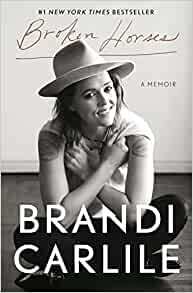
January 2, 2022
Sunday Review: Painting the Light by Sally Cabot Gunning
I was first drawn to this historical novel because it’s about an artist. As it turns out, the subject of painting plays less of a role in the story than I’d hoped, but I still enjoyed it thoroughly.
Ida Russell has been battered by life’s storms. Before the story opens, every member of her family of origin has died from drowning: her father and two brothers by accident, her mother by suicide. Before these tragedies, Ida was a promising painter and art student in Boston. However, lonely and weighed down by grief, she decides after an all-too-brief courtship to marry Ezra Pease, a sheep farmer from Martha’s Vineyard.
After the marriage, Ida discovers to her chagrin that Ezra is a lazy farmer, an unkind husband who alternates between inattention and disparagement, and a habitual gambler who takes part in nightly poker games in town. The charm he displayed during their courtship has vanished, along with her family property, which he sold as soon as he had the legal right as her husband to do so. The running of the household and many of the duties of the farm fall to Ida, leaving her no time to paint. Two years into their marriage, Ezra and Ida are barely on speaking terms.
Ezra and a friend named Mose open a salvage company, and the work occasionally takes them away from home—absences that Ida relishes—but that business doesn’t prosper any more than the farm does. Shortly after the novel begins, Ezra and Mose leave for a salvage job in Rhode Island. While they are away, a terrible storm hits, and their company boat catches fire and sinks. A ship named the Portland traveling to Rhode Island also sinks with great loss of life. A few days afterward, Ida is stunned to receive a letter from Ezra written just before he and Mose were about to board the ill-fated vessel. Although their bodies never wash ashore, they are presumed dead because only a small portion of those lost in the Portland are ever recovered. Although Ida retains little love for her husband, losing another person to drowning feels like an unnecessarily cruel trick of fate.
As Ida sets to work trying to make sense of her husband’s assets, she encounters Mose’s brother, Henry Barstow, a man she’s met before and liked. They team up to settle the estate and see if anything remains for either of them to inherit. Ida’s financial situation is dire. Ezra’s lies and deceptions—and the destruction of the salvage boat—have left her with nothing to live on but the grudging support of her husband’s aunt. Complicating matters, Ida finds herself more and more attracted to Henry, who is married but also in a foundering relationship.
Ida makes many discoveries through the course of the story—about her husband, about secret schemes, and about the island residents it takes her so long to come to know. Most importantly, she learns to rely on herself and to feel confidence in her own opinions rather than society’s dictates.
Highly recommended.
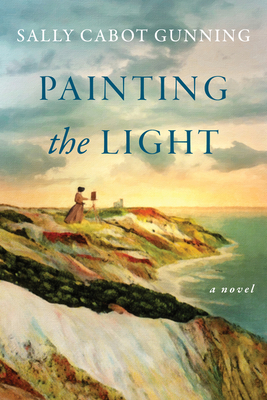
December 26, 2021
Sunday Review: The Sentence by Louise Erdrich
I read this book because a friend strongly recommended it on Facebook, and while I’m not sorry I did, I didn’t love it as much as she did nor as much as I hoped I would.
The main character is Tookie, an Ojibwe woman with a criminal past. She is convinced by a woman she loves to commit one crime, only to learn afterward that she has been set up to be guilty of an entirely different offense. The judge hands her an extremely harsh sentence, but after several years, her lawyer manages to get it reduced and Tookie is released. Her time in prison turned Tookie into a voracious reader, so she applies for a job at Louise Erdrich’s independent store Birchbark Books. This was the first thing that made it hard for me to connect to the story. To have Louise Erdrich write about herself as a minor character in her own novel felt too meta to me, and I didn’t enjoy the archness of it.
Tookie herself is a complex character, scarred but with the potential for warmth and growth. She turns out to be a great bookseller. Because of the wide and eclectic reading experience she gained in prison and has continued on the outside, she is often able to help customers find books they will love. Her most annoying regular customer is a woman named Flora, who does a great many charitable deeds but also insists without any concrete evidence that she too has Native ancestry. Flora dies on All Souls Day, 2019, but she refuses to rest in peace. Instead, she haunts the bookstore by returning every day at her normal time and moving to all her favorite spots within the building. In particular, Flora is drawn to Tookie, and one of the essential questions of the novel is why.
As the weeks pass, Flora persists and Tookie becomes more and more desperate to figure out how to persuade her to leave. The year draws to a close, and as it does, we as readers know something the characters do not: COVID-19 is coming, and their lives will be forever changed. Not only COVID, but this is Minneapolis, so the murder of George Floyd and the subsequent unrest will become part of the storyline too.
And here is where I experienced my other big disconnect from the story. I expected these two catastrophes to stir me deeply, but they did not. I don’t know if the problem is that I’m still too numb (I lost a dearly loved brother to COVID) or if Louise Erdrich didn’t have enough distance from the events to be able to write about them with power and insight. Either is possible—or both in tandem.
All I know is that the book did not move me in the way I’d hoped. Reactions to fiction are subjective—as an author myself, I know that well—so I don’t offer this as a definitive response to The Sentence. If the premise of the book intrigues you, I recommend that you give it a try and decide for yourself.
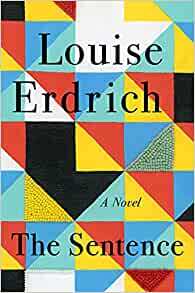
December 19, 2021
Sunday Review: Billy Summers by Stephen King
I don’t read horror fiction, so I’ve never read much by Stephen King. A few years ago, however, I listened to 11/22/63 and really loved it. So when I saw the promotions for Billy Summers. I was intrigued.
Billy Summers is a hit man with an unusual past; his first murder was in response to abuse, and later he served as a sniper in Iraq, which gave him professional training. To reconcile his conscience with what he does for a living, Billy reassures himself that he kills only “bad people.”
Now in his mid-forties, Billy has had enough and wants to retire. He decides to take one last job—even though he knows from movies and novels that the “one last job” always turns out to be a disaster. His anonymous client is offering a fortune, large enough for him to quit forever, and the temptation is impossible to resist.
The catch is that Billy needs to hole up in a small town for weeks or perhaps months waiting for his target to be extradited from California. He’s going to take the shot from an office building near the courthouse, and his cover for being there is that he’s a writer who needs to be on his own and away from temptation to finish the book he’s promised his publisher. To pass the endless hours, he actually does begin to write his memoir and finds the process of telling his story both addictive and therapeutic. This book within a book is just as engaging as the story that frames it.
However, Billy’s self-protective hackles soon rise as he senses that the job isn’t quite what it seems. The man who’s renting him the office space and supplying the weapon is tense and scared, and Billy deduces that the poor guy is the weak link in the chain and being set up as a patsy. Then, when Billy hears the arrangements that have been made for his own getaway, he suspects that the plans involve putting him six feet under rather spiriting him six hundred miles north. So he goes rogue and puts together his own fake id and method of extricating himself from the crime scene.
More complications arise in the form of an unexpected and unwise relationship with a victimized young woman and an investigation by Billy and his manager into the shadowy figure behind the Byzantine assassination scheme. The reader is left racing through pages to find out if Billy will indeed pull himself out of his underworld life and make it to happily ever after.
4 stars of 5
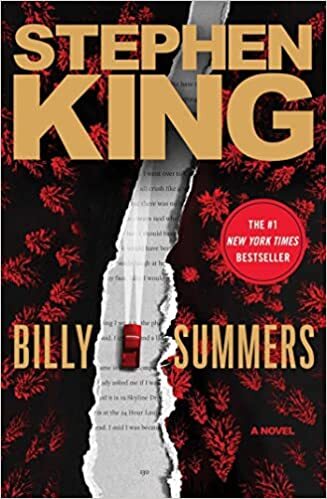
December 12, 2021
Sunday Review: The Remains of the Day by Kazuo Ishiguro
I have mixed feelings about this novel. On the one hand, I recognize its brilliance. On the other, I developed no emotional connection to it or to the characters.
The plot is deceptively simple. The narrator, Stevens, has been the butler at Darlington Hall for decades. Most of that time, he served Lord Darlington; now in the mid-1950s, he works for an American and has a tiny staff compared to the house’s past glory days.
Stevens is the son of a butler and has given years of thought to what constitutes a “great” butler; he concludes that what defines a butler at the top of his profession is not a polished manner or administrative tricks to ease the running of a great house. No, the important quality is dignity: the ability to serve with efficiency, aplomb, and a reserved demeanor even in a crisis and, above all, never reveal when one is dealing with personal difficulties of a physical or emotional nature.
The novel opens in 1956 with Stevens’s current employer offering to let him take time off for a brief vacation: a road trip through the West Country of England. Stevens hesitates at first—he is not accustomed to taking a holiday or indeed doing anything for his own pleasure—but then he justifies the excursion by deciding to visit a former housekeeper with whom he worked for many years. Lately certain inefficiencies and mistakes have crept into the running of the house, and Stevens has decided that augmenting the staff is the answer to the problem. The former housekeeper’s correspondence has led him to think that she is unhappy in her marriage and perhaps has brought it to an end. Therefore, he convinces himself that she would welcome an invitation to resume her old position, and satisfied by that rationalization, he sets off on his trip.
During the several days of motoring, Stevens reviews his past career. In this novel, Ishiguro uses a similar device as in the recent Klara and the Sun: an unreliable and somewhat clueless narrator. Slowly over the course of Stevens’s reminiscences, the reader becomes aware that the true story of the events he recalls, the character of his former employer, and Stevens’s relationship with the housekeeper are somewhat different than Stevens has permitted himself to admit. The message of this story can be found only by reading between the lines.
Which brings me to my ambivalence. I’m not the type of reader who is satisfied by wholly cerebral books. For me, reading should be more than an intellectual exercise. To love a book deeply, I must love the characters. I don’t mind if they are flawed. I do mind if I find them inaccessible. Throughout this novel, I always felt removed from Stevens. And for that reason alone, I consider it a 4-star rather than a 5-star read.
December 5, 2021
Sunday Review: The Secret Keeper of Jaipur by Alka Joshi
I really enjoy well-written Indian novels. The country is so vast with an ancient history and a wide diversity of regions and peoples. A few years ago, I read and loved Alka Joshi’s first novel, The Henna Artist, the story of Lakshmi, a determined woman who fled a bad marriage and found a way to use her knowledge of herbal remedies and the art of henna painting to support herself, a servant boy named Malik, and the sister who showed up unexpectedly on her doorstep. (The premise grabbed my interest right away because when I was in my late twenties, I attended the wedding of a beloved Afghan friend and got to experience having my hand painted with henna before the ceremony.)
This week, I read The Secret Keeper of Jaipur, which is a sequel to the first novel. Set 12 years after The Henna Artist, it focuses on Lakshmi and most especially Malik. The novel grabs the reader’s attention right away; 20-year-old Malik is in Jaipur learning the construction business from the renowned Singh-Sharma Construction Company, which has been building a world-class cinema for the Maharani Latika of Jaipur. At the grand opening, a disaster occurs when the balcony collapses, killing several people.
The novel then backtracks two months to allow readers both to catch their breath and to catch up with what’s happened to Malik, Lakshmi, and her sister Radha in the intervening years. Malik is now in love with a young woman who is every bit as strong, self-sufficient, and determined as Lakshmi. She’s also a recent widow who comes from a tribe of nomadic hill people, and she has two young children. Lakshmi is not at all sure this is the right partner for her protegé.
Then there is the mystery of why the building collapses. Inquisitive, streetwise Malik is the only person who doubts the official explanation, and he may be the only one who can save family friend Manu Agarwal from unjustly taking the blame for shoddy workmanship.
I recommend the book highly, as I do its prequel. It isn’t absolutely necessary to read the two in order, although the second book does contain some spoilers for the first. (P.S. Isn’t the cover absolutely gorgeous?)
